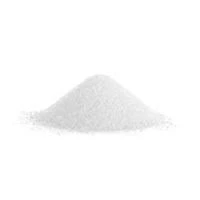
sulfur dioxide as a preservative
Understanding Sulfur Dioxide as a Preservative
Sulfur dioxide (SO₂) is a colorless gas with a pungent smell, commonly recognized for its use as a preservative and antioxidant in various food and beverage products, particularly in the wine and dried fruit industries
. Its unique properties enable it to prevent spoilage and extend shelf life, making it a valuable tool for food preservation.The primary function of sulfur dioxide in food preservation is its ability to inhibit the growth of microorganisms, including bacteria and molds. It acts as a potent antioxidant, protecting food from oxidative damage that can lead to rancidity. This is especially pertinent in products such as dried fruits, where exposure to air can quickly degrade quality. By preventing oxidation, sulfur dioxide helps maintain not only the freshness and flavor of the food but also its nutritional value.
In wines, sulfur dioxide serves a dual purpose. It is used during the winemaking process to sanitize equipment and prevent unwanted microbial fermentation. Additionally, it helps stabilize the wine, preserving its flavor profile and preventing spoilage over time. When added in proper quantities, sulfur dioxide can enhance the taste and aromatic qualities of the wine, contributing to its overall character.
sulfur dioxide as a preservative

Despite its advantages, the use of sulfur dioxide as a preservative is not without controversy. Some individuals experience allergic reactions to sulfites, the class of compounds which includes sulfur dioxide. Symptoms can range from mild reactions such as headaches and skin rashes to more severe issues like asthma attacks for those with sulfite sensitivity. Consequently, many countries mandate labeling requirements on food products containing sulfur dioxide, ensuring consumers are informed about potential allergens.
Moreover, there are growing concerns about the long-term health impacts of consuming preserved foods. While sulfur dioxide is generally recognized as safe when used appropriately, excessive consumption can lead to various health issues. This has prompted some consumers to seek alternatives to sulfur dioxide in their food, fostering a trend towards organic and natural preservatives.
In conclusion, sulfur dioxide plays a significant role in the preservation of food and beverages, particularly in enhancing product longevity and maintaining quality. While its effectiveness as a preservative cannot be denied, it is crucial for consumers to be aware of potential allergic reactions and health considerations associated with its use. As the food industry evolves, the challenge remains to balance the benefits of effective preservation with consumer health and safety, paving the way for new preserving methods that meet modern demands.
-
nitrile-rubber-honoring-strict-production-standardsNewsAug.22,2025
-
aspartame-ingredients-honoring-food-safety-valuesNewsAug.22,2025
-
fertilizer-for-balanced-plant-nutritionNewsAug.22,2025
-
cyanide-gold-processing-with-high-purity-additivesNewsAug.22,2025
-
formic-acid-in-textile-dyeing-applicationsNewsAug.22,2025
-
aluminum-hydroxide-gel-in-skincare-productsNewsAug.22,2025
-
Regulatory Compliance for Global Mining Chemicals UseNewsAug.12,2025
Hebei Tenger Chemical Technology Co., Ltd. focuses on the chemical industry and is committed to the export service of chemical raw materials.
-

view more DiethanolisopropanolamineIn the ever-growing field of chemical solutions, diethanolisopropanolamine (DEIPA) stands out as a versatile and important compound. Due to its unique chemical structure and properties, DEIPA is of interest to various industries including construction, personal care, and agriculture. -

view more TriisopropanolamineTriisopropanolamine (TIPA) alkanol amine substance, is a kind of alcohol amine compound with amino and alcohol hydroxyl, and because of its molecules contains both amino and hydroxyl. -

view more Tetramethyl Thiuram DisulfideTetramethyl thiuram disulfide, also known as TMTD, is a white to light-yellow powder with a distinct sulfur-like odor. It is soluble in organic solvents such as benzene, acetone, and ethyl acetate, making it highly versatile for use in different formulations. TMTD is known for its excellent vulcanization acceleration properties, which makes it a key ingredient in the production of rubber products. Additionally, it acts as an effective fungicide and bactericide, making it valuable in agricultural applications. Its high purity and stability ensure consistent performance, making it a preferred choice for manufacturers across various industries.





